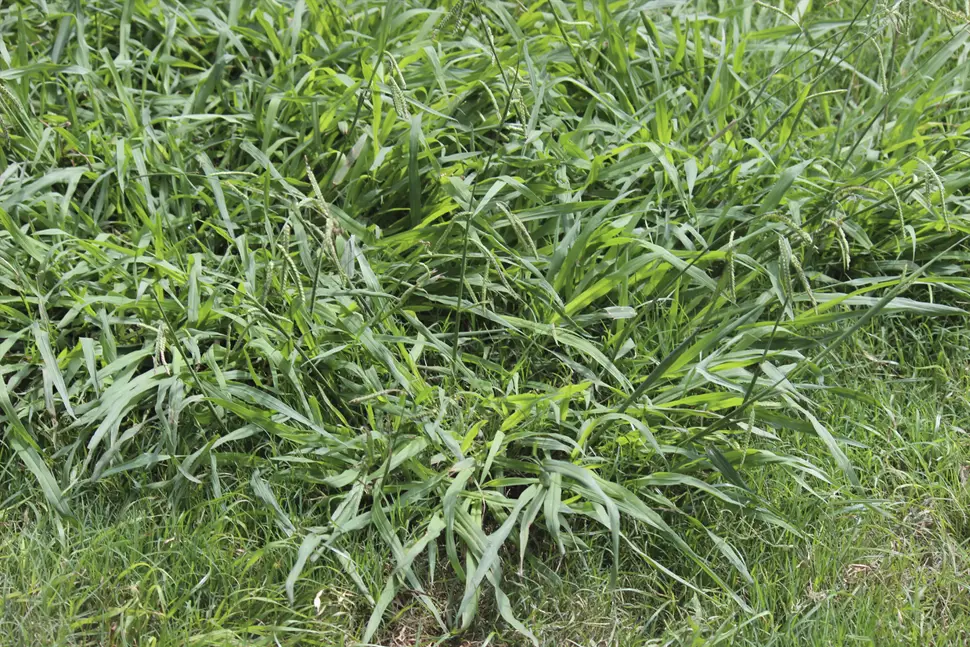Crabgrass can be a frustrating nuisance for homeowners, but the good news is that it’s possible to keep your lawn crabgrass-free with the right agronomic techniques.

Crabgrass can be a frustrating nuisance for homeowners, but the good news is that it’s possible to keep your lawn crabgrass-free with the right agronomic techniques. If you live in Raleigh or Charlotte, North Carolina and want to take control of your yard and rid yourself of pesky crabgrass, then this blog post is for you! We'll cover what crabsagrass is and why it's important to manage it properly; provide an overview of effective management strategies; discuss specialized products available to combat crabgrass; and even offer suggestions on alternative groundcovers if needed. We’re here to help guide you through every step so that when summer rolls around again, you’ll have one less thing worrying about - no more battling weeds!
If you've ever tried to maintain a lush, green lawn, you probably know all too well about the nuisance that is crabgrass. This pesky weed not only looks unsightly, but it can also quickly spread, choking out your desired grass and leaving your lawn looking patchy and unkempt. One of the main reasons why crabgrass is so difficult to manage is because it's an annual weed that can produce more than 150,000 seeds a season. That means even if you manage to get rid of it one year, there's a good chance it'll come back with a vengeance the next. Additionally, crabgrass is able to grow in soil with poor fertility, making it difficult to stop from taking root. Overall, dealing with crabgrass can be a frustrating and ongoing battle for homeowners trying to maintain a healthy lawn.
Have you noticed some pesky crabgrass popping up in your yard? It's important to identify the type of crabgrass so you can effectively combat it. There are two common types of crabgrass: smooth crabgrass and hairy crabgrass. Smooth crabgrass has a flat leaf blade and grows well in hot, dry conditions. On the other hand, hairy crabgrass has a fuzzy leaf blade and thrives in moist, shaded areas. Understanding the growing conditions of each type of crabgrass will help you determine the best approach for removing it from your lawn.
If you're looking to keep your lawn looking its best, it's essential to take the necessary steps to control crabgrass. The good news is that there are several methods you can choose from to tackle this pesky weed. Chemical methods, like pre-emergent herbicides, work by preventing the weed from growing in the first place. Non-chemical methods, such as proper lawn care practices and manual removal, can also be effective. The key is to choose the method that works best for your lawn and meets your personal preferences. No matter which route you choose, staying on top of crabgrass control will help ensure a healthy and beautiful lawn for years to come.
If you've ever had to deal with crabgrass in your lawn, you know what a nuisance it can be. That's why it's so important to implement effective agronomic techniques to prevent its spread. Proper mowing is crucial - you want to make sure you're not cutting your grass too short, or you'll create bare spots that are vulnerable to crabgrass. Watering is also key - try to water your lawn deeply and infrequently, to encourage deep root growth which will help crowd out crabgrass. Fertilizing is important too, and you want to make sure you're using the right type of fertilizer at the right time of year. And finally, overseeding can be a great way to help prevent crabgrass - when your lawn is thick and healthy, there's less room for weeds to take hold. By using these agronomic techniques and staying vigilant, you can keep your lawn looking great and crabgrass-free.
Now that you've put in the hard work to keep your lawn looking lush and green, it's important to monitor it consistently. Even with the best techniques, there's always a chance that issues will arise. Keeping a watchful eye out for warning signs of trouble, such as dry patches or unusual discoloration, is crucial to maintaining a healthy lawn. If you do notice any issues, take corrective action as soon as possible. This might mean adjusting your watering schedule or applying additional treatments. By being proactive in your monitoring and maintenance, you can be sure your lawn stays healthy and beautiful all season long.
If you're anything like me, the last thing you want is for crabgrass to keep popping up in your lawn year after year. But keeping it at bay requires diligence and consistency. It's not enough to apply weed killer once and hope for the best. Instead, reapply the techniques on a regular basis to keep crabgrass from coming back. You might need to apply weed killer more than once throughout the growing season, or you might need to adjust your lawn care routine to prevent crabgrass from taking root in the first place. Whatever your approach, the key is to stay vigilant and keep up with the work. With a little bit of effort, you can maintain a beautiful and healthy lawn all year round.
Managing crabgrass in your lawn can be an arduous task, but it doesn’t have to be. By understanding what makes crabgrass such a difficult weed to eradicate and by using beneficial agronomic techniques, homeowners can effectively control its spread. Identifying the type of crabgrass growing in the lawn is important, as well as choosing the right technique that fits both the homeowner’s needs and environment. After implementing these techniques, homeowners must stay vigilant and monitor their lawns on a regular basis in order to ensure that crabgrass is kept at bay. With proper application of the strategies discussed, your lawn will be free of crabgrass in no time and remain looking lush and green all year round.